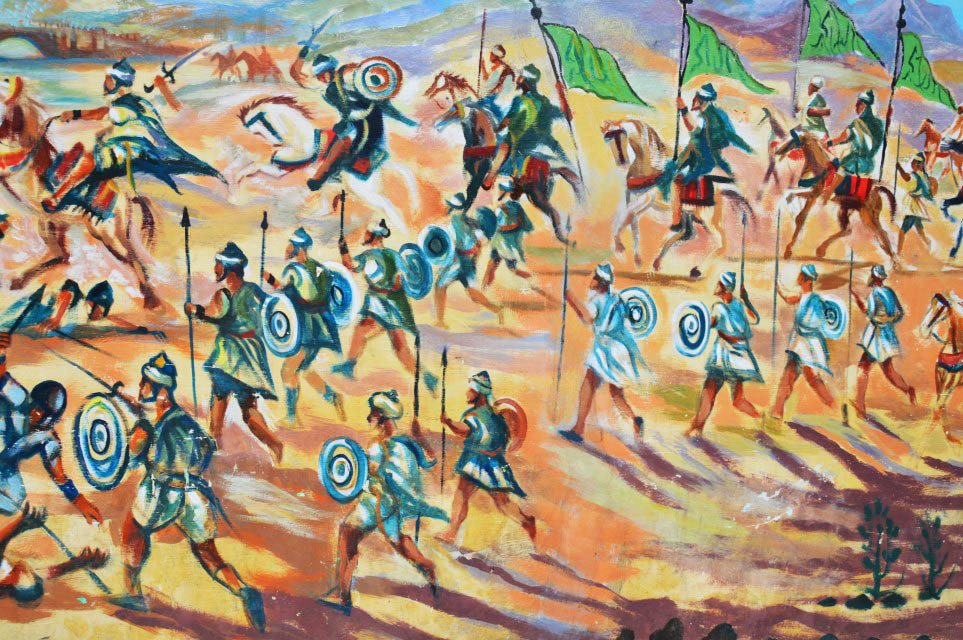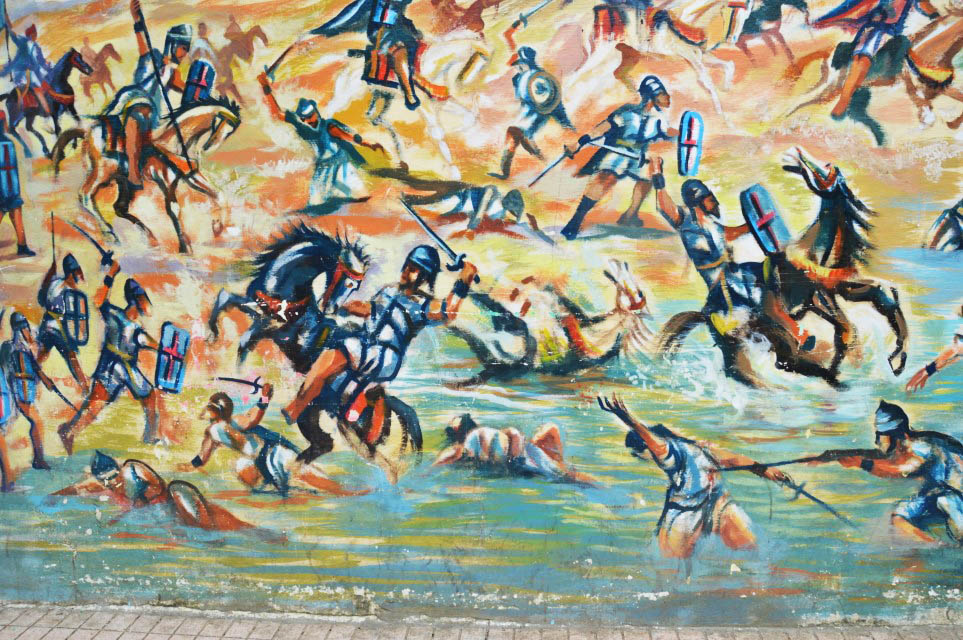Two conferences on the battle of Alcácer de Quibir are scheduled for the next 23rd of June, at 18 pm, in the Auditorium of the Museum of Portimão, in an initiative of the Institute of Ibero-Atlantic Culture (ICIA).
The first, entitled “Os renegados de Alcácer Quibir”, will be given by Frederico Mendes Paula, followed by another, by António Jorge Afonso, with the title “Relations with Morocco after Qued Al-Makhazin. The particular case of the Alawite renaissance”.
Architect Frederico Mendes Paula will talk about the condition of the Renegados (Portuguese captives during the battle of Alcácer Quibir who refused redemption, remaining in the Moroccan court in adverse conditions).
It will clarify that such a condition was not a matter of a simple “change of field”, but rather a radical alteration of values, religion and, above all, one's own identity. This condition represented, in most cases, the final stage of a process that involved corsair activity and the trade of captives, many of whom, in order to survive, “renounced”.
Others, a minority, were European fugitives convicted of crimes in their countries of origin, who, in Morocco, had the possibility of rebuilding their lives, or were adventurers in search of fame and easy enrichment.
The large number of Portuguese prisoners in the Battle of Alcácer Quibir made the influence of the renegades in Morocco gain relevance, as they constituted a new elite that was very important for the modernization of the country, and which would reach its apogee after the year 1603, with the death of Sultan Ahmed Al-Mansur and the subsequent internal struggles for power, in which the renegades played a decisive role in the leadership of the various factions.
Professor António Jorge Afonso will explain how relations between Portugal and Morocco were established after the fateful battle. Sultans of keen intelligence and pragmatism such as Muhammad Ben 'Abd Allah and Muley Sulayman; monarchs rejected by European centralism like Muley Yazid; exceptional diplomats such as Muhammad Ben Othman, Jorge Pedro Colaço and Fr. Manuel Rebelo da Silva, managed Portuguese-Moroccan relations in a context of great international uncertainty.
The existing documentation in the Portuguese archives clearly reflects the way in which the connections with the Moroccan sultans survived and prospered in a time when, in the Maghreb, the interference of the European powers was accentuated.
In a geopolitical space of little interest to the Kingdom's elites, more interested in positions close to the major European decision-making centres, Portugal placed the management of Moroccan affairs in the hands of the Colaço family and some distinguished Arabists, to which the Alawite sultans also paid particular attention.



















Comments